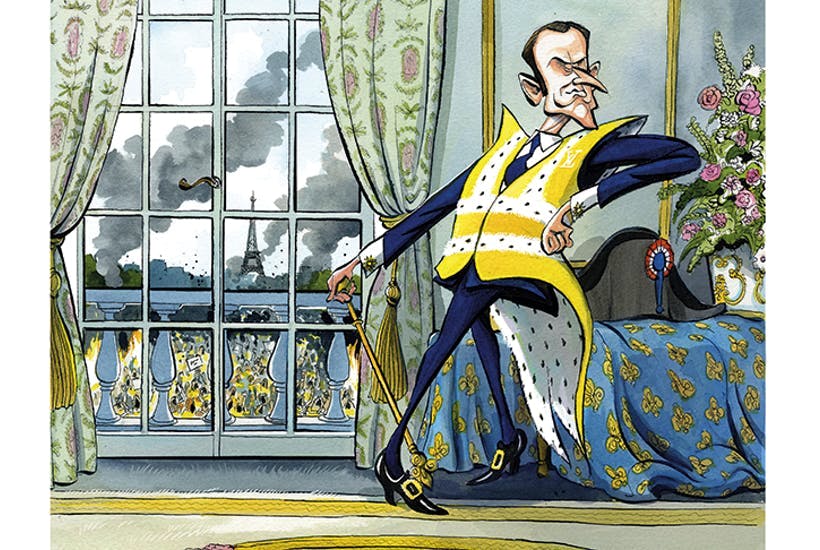Winston Churchill’s comment about France has lost none of its piquancy. Churchill famously said of the difference between Britain, France and Germany:
‘In England, everything is permitted except what is forbidden. In Germany, everything is forbidden except what is permitted. In France, everything is allowed, even what is prohibited.’
France’s debilitating national transport strike, now in its 47th day, proves it. Ever since the Enlightenment, France has led the world in developing universal principles to govern citizens’ lives in the name of equality. This differs from the approach across the Channel, where piecemeal legislation of customary English common law means everything is permitted except what is forbidden, in the name of liberty.
After the French Revolution, uniformity of legislation was considered a guarantee of unity and equality for all, whether it be weights and measures or the Napoleonic legal civil code, the bible of French justice. France’s five republics deemed their values to be universal for all mankind, not just French citizens. The principle of universality was extended to French colonies (supposed beneficiaries of the Republic’s ‘civilising mission’) and eventually to that more recent off-shoot of French influence, method and legalism, the European Union.
Today’s strike hangs on the reform of France’s labyrinthine state pension system with its 42 special schemes, legal retirement age, which range from 55 to 62, and varying contributory rates. Emmanuel Macron still presents the state pension, which in some cases dates from Louis IV (for the Paris Opera), like some feudal remnant. In his view it is not egalitarian but unjust and outdated. Another thing which he does not dwell on is also true: it is increasingly unaffordable.
Macron is trying to drive through changes which involve the replacement of this system with a universal points-based one. But those striking are determined not to budge. Moderate ‘reformist’ trades unions might be seduced by the universalist principle of Macron’s pensions shake-up, if not its proposed application. But other unions take a much tougher line and simply reject the reform outright. This split is similar among the average French voter: public opinion is sympathetic in theory to a universal system but opposed in practice to Macron’s reform.
And so the strike – now one of the longest in French history, which has cost French railways alone over a billion euros – drags on. In the end, Macron will win and a theoretically universal retirement system will be imposed.
But here is where Churchill got it right. The way negotiations are progressing ensures that all that was supposed to be prohibited – special regimes, varied retirement ages – will be allowed. The universalist principle will be burrowed through with multiple exceptions like a Gruyère cheese. Even Macron joked a couple of days ago that there are likely to be 66 million exceptions, one for every Frenchman.
President Macron’s reforming agenda since 2017 has frequently used universalist principles to achieve his aims, in areas from unemployment benefits to the status of railway workers and now state pensions. It is unlikely to stop there.
Forthcoming reform of the civil service will seek to do away with the ‘grands corps de l’Etat’ and France’s specialist civil service training schools for top officials and judges in the name of some universalist logic. But – as usual – special interests, influential lobbies and the weight of tradition will blunt the universalist reform and water down what Macron is trying to achieve. But then France wouldn’t have it any other way, as Churchill knew all too well.







Comments